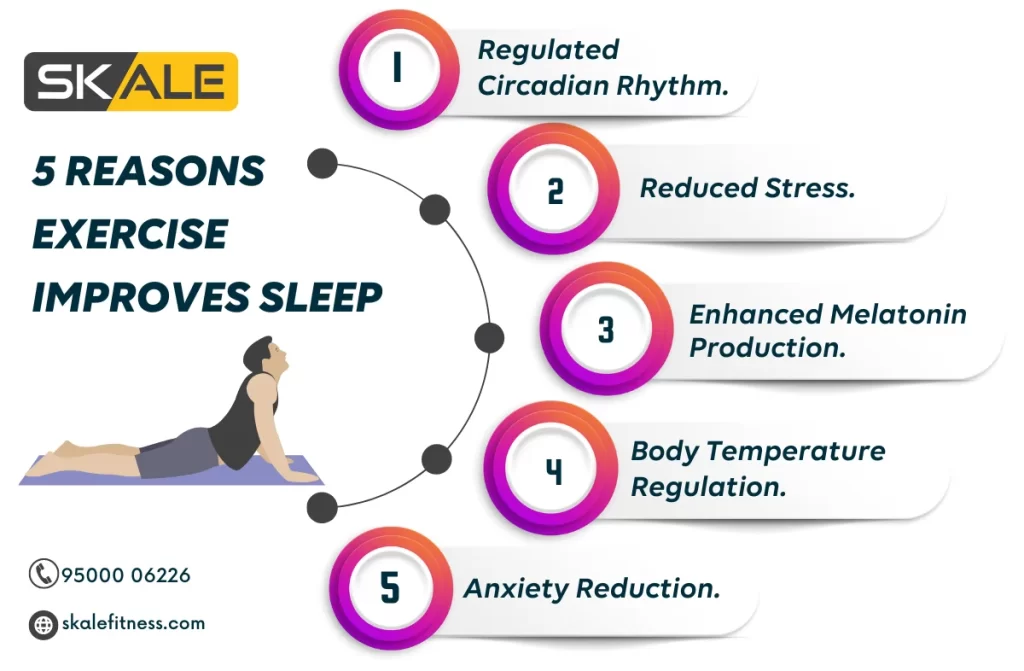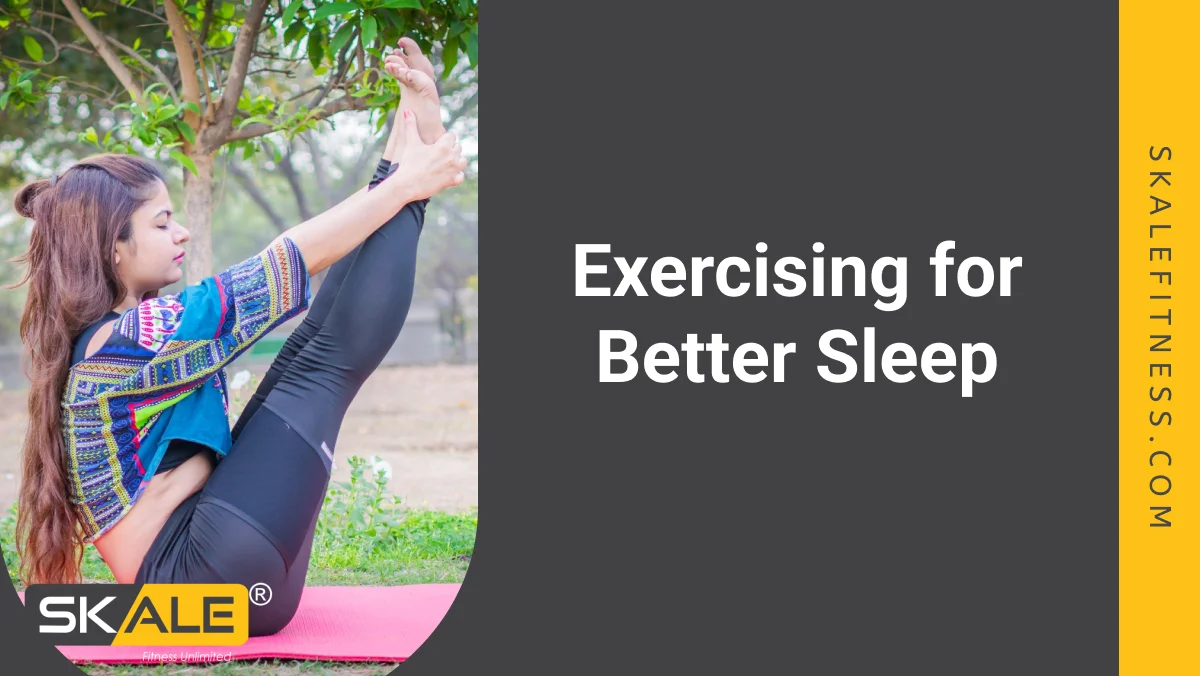In our fast-paced world, getting a good night’s sleep has become a luxury for many. Stress, irregular routines, and sedentary lifestyles often contribute to sleep disturbances. In this blog post, we’ll explore how exercising for better sleep would be of great help and discuss some of the best exercises to help you achieve that coveted restorative rest. While there are various factors that influence sleep quality, incorporating regular physical activity into your routine can have a positive impact on your sleep patterns.
The Connection Between Exercise and Sleep
Performing exercise for insomnia has long been recognized for its numerous health benefits, including its positive effects on sleep. Engaging in physical activity helps regulate the body’s circadian rhythm, or internal clock, which plays a crucial role in determining when we feel awake and when we feel tired.
Regular exercise reduces stress and anxiety, two common culprits of sleep disturbances. Additionally, exercising for better sleep increases the body’s core temperature, and as it cools down post-exercise, it signals to the body that it’s time to sleep.

Best Exercising for Better Sleep
- Aerobic Exercises: This exercising for better sleep gets your heart pumping and improves cardiovascular health. Engaging in activities such as jogging, brisk walking, cycling and swimming can be fantastic options. Work towards achieving a minimum of 150 minutes of aerobic exercise at a moderate intensity each week. However, try to complete your workout several hours before bedtime to give your body enough time to wind down.
- Yoga: Yoga combines gentle stretches, controlled breathing, and meditation, making it an ideal choice for promoting relaxation and reducing stress. Exercising for better sleep by performing certain yoga poses, like Child’s Pose and Legs Up the Wall, can help activate the body’s parasympathetic nervous system, which induces a state of calmness and prepares you for sleep.
- Strength Training: Incorporating strength training into your routine while considering exercise for insomnia like weight lifting or bodyweight exercises, can improve overall sleep quality. Avoid doing intense strength training too close to bedtime, as it may have an energizing effect.
- Tai Chi: Tai Chi is a low-impact exercising for better sleep that combines slow, flowing movements with deep breathing and meditation. It has been linked to improved sleep quality, reduced insomnia symptoms, and enhanced overall well-being. Its gentle nature makes it suitable for people of all fitness levels.
- Stretching Routine: Simple stretching exercise for insomnia can help alleviate muscle tension, which often accumulates throughout the day. Incorporate a gentle stretching routine before bedtime to relax your muscles and create a sense of calm.
- Mindfulness and Meditation: While not traditional exercises, mindfulness and meditation techniques contribute to better sleep by calming the mind and reducing stress. Practising exercising for better sleep like deep breathing, progressive muscle relaxation, and guided imagery can be particularly effective.
- Cardio Dance: If you enjoy dancing, cardio dance classes or dancing to your favorite tunes at home can be an enjoyable way to engage in physical activity. This exercising for better sleep not only burns calories but also releases endorphins, promoting a positive mood conducive to better sleep.
Conclusion
To conclude, exercising for better sleep requires consistency and a well-rounded approach. Remember that individual preferences and physical conditions vary, so it’s important to choose exercises that you enjoy and that suit your fitness level. Prioritize creating a regular exercise routine that aligns with your daily schedule, and follow it. This will help you have a positive impact on your sleep patterns, leaving you feeling more rested, refreshed, and ready to take on the day.




